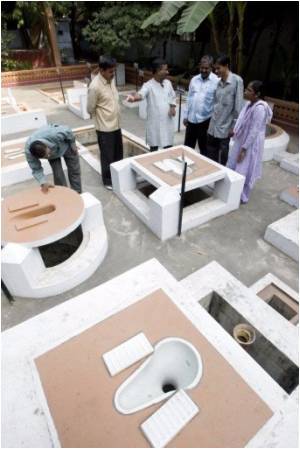
Alan Langdon, associate professor and post-doctoral researcher Hilary Nath, from the University of Waikato, decided to try using electrochemistry to remove the iron and manganese prevalent in bore water from Waikato's peaty soils.
The residues give the water its typical browny-orange colour, and generally make it undrinkable without expensive treatment using aerators, filters, ion exchangers and tanks, according to a Waikato statement.
Researchers came up with a simple system that uses electric current passing between two perforated titanium electrodes to turn naturally occurring chloride ions in the water into chlorine.
The chlorine then oxidises and precipitates out the metal contaminants, and also disinfects the water passing through the system, making it safe to drink. Best of all, the whole system can be powered by a car battery.
The researchers noticed that the closer together the two electrodes were positioned, the higher the electric field generated between them. And the higher the electric field, the more potent the chlorine being produced.
Advertisement
At slightly higher applied voltages the PEFT cell can also disinfect water by the electric field alone, with no need to produce any chlorine.
Advertisement
"And because the flow path through the cell is very short, we can achieve good water flow at modest pressure."
A prototype will be on show at the University of Waikato stand at Equidays next month.
Langdon and Nath are now testing the prototype, and getting good results - they've seen total oxidation of iron during their trial.
"The initial focus will be disinfection of harvested rain water, disinfection of water supplies derived from surface water and bore water contaminated with iron - we need to be very sure our technology is robust before contemplating overseas markets, particularly in developing nations," added Nath.
Source-IANS












